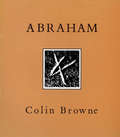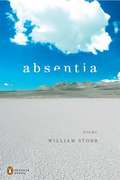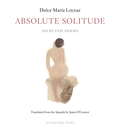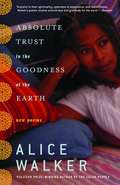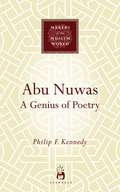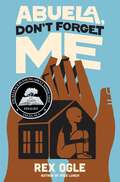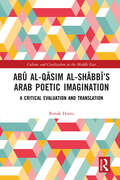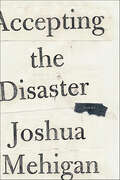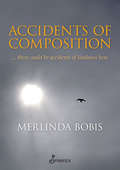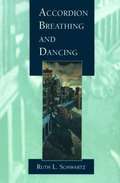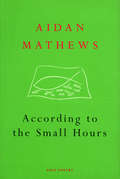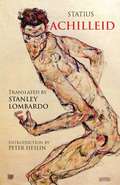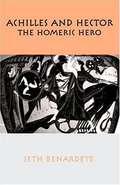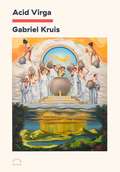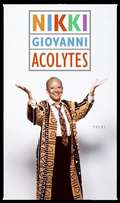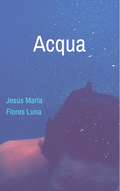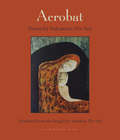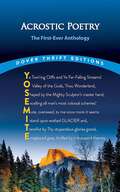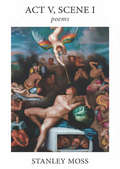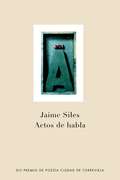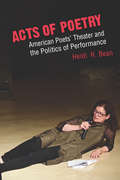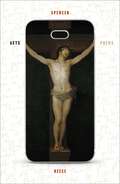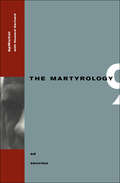- Table View
- List View
Abraham
by Colin BrowneIn these passionate poems, this long poem, there is a story (there are stories) which a reader mines out of a landscape of language moulded under great pressure and eloquent of the stresses that formed it. This is non-representational work of great concentration and beauty.
Abraham Lincoln, a Man for All the People: A Ballad
by Myra Cohn Livingston"A man for all the people, A man who stood up tall, Abe Lincoln spoke of justice And liberty for all." This book includes brief quotes from several speeches, and a nice reference section. Need a book for a book report? This could be it! Other books by this author are available in this library.
Absentia
by William StobbNew from the author of Nervous Systems, winner of the National Poetry Series. William Stobb has won acclaim for wide-ranging poetry that features tender realism, jazzy dissonance, luminous descriptions, and, in the words of Donald Revell, a "strange and elegantly accomplished serenity of tensions attenuated to their uttermost. " The poems in his second collection, Absentia, see the big picture-the sweep of history, the ongoing evolution of consciousness, evidence of geological time in the landscape. Humbled by scales beyond comprehension, Stobb is nonetheless seduced and stricken by the present in its many manifestations. Whether dealing with family, friends, or nature, the poems in Absentia, with their rich emotional palette and vivid, precise language, respond and transform, calling us to attend to the wide skies above and inside us. .
Absolute Solitude: Selected Poems
by Dulce Maria Loynaz James O'ConnorIn the first comprehensive selection and translation of Dulce María Loynaz's poetry, James O'Connor invites us to hear the haunting voice of Cuba's celebrated poet, whom the Nobel Laureate Juan Ramón Jiménez terms in his Foreword, "archaic and new...tender, weightless, rich in abandon." Widely published in Spain during the 1950s, Loynaz's poetry was almost forgotten in Cuba after the Revolution. International recognition came to her late: at the age of ninety she was living in seclusion in Havana when the Royal Spanish Academy awarded her the 1992 Cervantes Prize, the highest literary accolade in the Spanish language. The first English publication of her work, Absolute Solitude contains a selection of poems from each of Loynaz's books, including the acclaimed prose poems from Poems with No Names, a selection of posthumously published work.From the Trade Paperback edition.
Absolute Trust in the Goodness of the Earth
by Alice WalkerThe Pulitzer Prize-winning author ofThe Color Purplegives us her first new collection of poetry in more than a decade, poems that reaffirm her as "one of the best American writers of today" (The Washington Post). The forces of nature and the strength of the human spirit inspire the poems inAbsolute Trust in the Goodness of the Earth. Alice Walker opens us up to feeling and understanding with poems that cover a broad spectrum of emotions. With profound artistry, Walker searches for, discovers, and declares the fundamental beauty of existence, as she explores what it means to live life fully, to learn from it, and to grow both as an individual and as part of a greater spiritual community. In "The Same as Gold," Walker writes of the essence of grief, and of our inherent powers of love and acceptance. In "Everyone Who Works for Me," Walker considers, with humor and grace, the frenzy that permeates modern life--a frenzy that prevents us from seeing the beauty in everything we do until we step back and take the time to look at and comprehend ourselves and those around us. In "The Love of Bodies," Walker elegantly expresses the gratitude and tenderness we are capable of feeling for loved ones, living and dead, and the inescapable emotional connections that bind us together. About Walker's poetry, America has said, "In the tradition of Whitman, Walker sings, celebrates and agonizes over the ordinary vicissitudes that link and separate all of humankind," and the same could be said about this astonishing new collection. Despite the hunger we cannot possess more than this: Peace in a garden of our own. --fromAbsolute Trust in the Goodness of the Earth
Abu Nuwas: A Genius of Poetry (Makers of the Muslim World)
by Philip F. KennedyThis is the first book to present the life, times and poetry of one of the greatest poets in the Arab tradition, Abu Nuwas. Author Philip Kennedy provides the narrative of Abu Nuwas's fascinating life, which was full of intrigue and debauched adventure, in parallel with the presentation of his greatest poems, across all genres, in easy and accessible translations, giving commentary where needed.
Abuela, Don't Forget Me
by Rex OgleA Finalist for the 2023 YALSA Excellence in Young Adult Nonfiction Award. Rex Ogle’s companion to Free Lunch and Punching Bag weaves humor, heartbreak, and hope into life-affirming poems that honor his grandmother’s legacy. In his award-winning memoir Free Lunch, Rex Ogle’s abuela features as a source of love and support. In this companion-in-verse, Rex captures and celebrates the powerful presence a woman he could always count on—to give him warm hugs and ear kisses, to teach him precious words in Spanish, to bring him to the library where he could take out as many books as he wanted, and to offer safety when darkness closed in. Throughout a coming of age marked by violence and dysfunction, Abuela’s red-brick house in Abilene, Texas, offered Rex the possibility of home, and Abuela herself the possibility for a better life. Abuela, Don’t Forget Me is a lyrical portrait of the transformative and towering woman who believed in Rex even when he didn’t yet know how to believe in himself.
Abū al-Qāsim al-Shābbī’s Arab Poetic Imagination: A Critical Evaluation and Translation (Culture and Civilization in the Middle East)
by Ronak HusniThis timely book critically evaluates the life, work and milieu of the Tunisian poet, Abū al-Qāsim al-Shābbī (1909-1934), providing translations and detailed commentaries around his seminal work “al-Khayāl al-ShiꜤrī ʿinda al-ʿArab” (“Arabic Poetic Imagination").The volume delves into the profound essence of one of Tunisia’s most iconic poets, a seminal figure in Arab literary modernism, celebrated for his fervent and transformative verses that continue to inspire audiences worldwide, far surpassing the boundaries of the Arab-speaking realm. This book not only presents meticulous translations of al-Shābbī’s significant poetic works, but also analyses the recurring themes and styles that define his oeuvre, offering insights into his lasting impact. The book contextualises al-Shābbī within the socio-political turbulence of early 20th century Tunisia, a period marked by profound changes that shaped his artistic outlook. It explores his deep engagement with both romantic and modernist motifs, seamlessly weaving together elements of nationalism, existentialist conflict, and a steadfast vision for a liberated Arab world. Furthermore, the critical commentaries in the book illuminate the array of poets and philosophical concepts that al-Shābbī references, directing readers to additional resources on both Arab and Western literary figures he discusses, enriching our appreciation of his intellectual interplay and deepening our understanding of his scholarly pursuits.This volume will be of pivotal interest for scholars, students and academics of Modern and Classical Arabic Literature, as well as those with an interest in these topic areas more generally.
Accepting the Disaster: Poems
by Joshua MehiganOne of The New York Times' 10 Favorite Poetry Books of 2014An astonishing new collection from one of our finest emerging poetsA shark's tooth, the shape-shifting cloud drifting from a smokestack, the smoke detectors that hang, ominous but disregarded, overhead—very little escapes the watchful eye of Joshua Mehigan. The poems in Accepting the Disaster range from lyric miniatures like "The Crossroads," a six-line sketch of an accident scene, to "The Orange Bottle," an expansive narrative page-turner whose main character suffers a psychotic episode after quitting medication. Mehigan blends the naturalistic milieu of such great chroniclers of American life as Stephen Crane and Studs Terkel with the cinematic menace and wonder of Fritz Lang. Balanced by the music of his verse, this unusual combination brings an eerie resonance to the real lives and institutions it evokes. These poems capture with equal tact the sinister quiet of a deserted Main Street, the tragic grandiosity of Michael Jackson, the loneliness of a self-loathing professor, the din of a cement factory, and the saving grandeur of the natural world. This much-anticipated second collection is the work of a nearly unrivaled craftsman, whose first book was called by Poetry "a work of some poise and finish, by turns delicate and robust."
Accidents of Composition
by Merlinda BobisIs it the sun a hole sucking in a bird or Icarus about to singe the sun? Which composes which? The poet asks as she circumnavigates the globe, history, and an inner universe. When it responds, there's the small shudder, the sprawl of a spin, or the quiet before and after a full circle. The eyes catch a black bird close to an eerie sun. Instantly, a poem: an accident of composition. Or a tree, rock, light from a story heard, dreamt, read or remembered returns as if it were the only tree, rock, light in the planet. The poet is caught, returned to her first heart: poetry. After four novels, Merlinda offers poems from the stillness of contemplation to the spinning of tales, then to passage across different histories. Glass becomes eternal greens underwater, fish gossip about colonisation, a gumnut turns dissident, and the dreams of Captain Cook and Pigafetta circumnavigate the globe leaving a trail of blood, beads, and the scent of cloves. But in between, the poet hopes: ‘there could be accidents / of kindness here.'
Accordian Breathing And Dancing
by Ruth L. SchwartzA collection of poems about AIDS from Ruth L. Schwartz who won the 1994 Associated Writing Programs Series award in Poetry.
According to the Small Hours
by Aidan MathewsIn this, his first collection of poems in fifteen years, Aidan Mathews brings together the sacred and the profane, playful and profound, the iconic and the everyday - illuminating the variousness and commonality of human experience. These poems wear their erudition lightly: dazzling us with their fresh observations, the strangely intimate details ('mice among the breadcrumbs of the Last Supper') and a fluid, metaphysical wit that can link a saint's matyrdom to a Sunday roast. Mercurial, passionate and always surprising, According to the Small Hours is a triumphant return to the form.
Achilleid
by Stanley Lombardo Statius Peter Heslin"One of the most entertaining short narratives of all time, the Achilleid is a stand-alone work of compelling contemporary interest that moves with great rapidity and clarity. Its compact narrative, which encompasses a brutish childhood, an overprotective mother, temporary gender bending, sexual violence, and a final coming to manhood with the promise of future military prowess, may be unparalleled in a single narrative of such brevity. The text has survived in hundreds of manuscripts, sometimes copied with Statius’ much longer and lugubrious Thebaid, but just as often with other racy short narratives and dramas taught in the medieval schools. The poem’s literary playfulness, visual imagery, and lighthearted treatment of mythological and historical data made it—and can still make it—a goldmine in the classroom. Until now, however, it has been virtually impossible to get a sense of the work if one did not know Latin—recent translations notwithstanding. Stanley Lombardo's translation of the Achilleid is a dream: it’s sound, enthralling, and will fully engage readers with this enticing, perplexing, at times distressing, but ultimately rewarding work." —Marjorie Curry Woods, Blumberg Centennial Professor of English and University Distinguished Teaching Professor, The University of Texas at Austin
Achilles And Hector: The Homeric Hero
by Seth Benardete Michael Davis Ronna BurgerSeth Benardete's study of the Iliad, which initiated his scholarly career, bears the hallmarks of the unique turn of mind that characterized all his later work. In a brief Note written thirty years later, included in this volume, he looks back on what he sees as the limits of his original reading of the Iliad. Yet he seems to have been aware of the fundamental problems from early on that he wrestled with explicitly when he returned to Homer some forty years later: the question of the relations among gods, fate, and human choice, which lies at the core of his late "Platonic reading" of the Odyssey, is already guiding his understanding of the Iliad. And he saw, in working out that understanding, how those relations take on a very distinct form for the tragic hero in contrast with the comic hero - Achilles in contrast with Odysseus.
Acid Virga
by Gabriel Kruis&“Gabriel Kruis is a really formidable poet. Acid Virga is rather terrifying, also a tour de force and a formal breakthrough. . . a blend of narrative and lyric the way the mind is. . . &” —ALICE NOTLEY &“As wildly visionary as it is linguistically alive, Gabriel Kruis&’s Acid Virga drills down into the bedrock of American life to produce a book unparalleled in its exploration of how visionary experience and social upheaval collide in ways that are both transformative and annihilating.&” —TOM SLEIGH &“If you&’ve ever been conscious, and felt a little disturbed about it, of life as ancient and ephemeral or that falling apart is an integral force, this is a book to read over and over.&” —STACY SZYMASZEK &“. . .a great affliction and affection inform Acid Virga, fast-moving with strophes like brisk moving cloud banks over the mind in your heart.&” —MAJOR JACKSON &“Meanwhile, in el mal pais, leaned out on mucinex, mixing dexy cocktails in the haloed pharmacy of the car...&” An unusually assured debut, Acid Virga is a memoir in verse cutting between a vivid Southwest upbringing and modern O&’Hara hustle in New York City, deeply and seriously reckoning with the psychedelic heritage of religion and the psychological clarity of chemical consciousness. It is both thrillingly propulsive and dense enough to read again and again, always offering up something new. Language is boundlessly specific, evocative of states internal and external, reading at times like a melancholy memoir stuck between stations, an epic poem or even a philosophical tract, always a true and important record of our American lives as lived now—an endless and reliable ticker tape of the soul.
Acolytes: Poems
by Nikki GiovanniA collection of eighty all new poems, Acolytes is distinctly Nikki Giovanni, but different. Not softened, but more inspired by love, celebration, memories and even nostalgia. She aims her intimate and sparing words at family and friends, the deaths of heroes and friends, favorite meals and candy, nature, libraries, and theatre. But in between, the deep and edgy conscience that has defined her for decades shines through when she writes about Rosa Parks, hurricane Katrina, and Emmett Till's disappearance, leaving no doubt that Nikki has not traded one approach for another, but simply made room for both.
Acqua
by Jesús María Flores LunaAcqua di Jesús María Flores Luna Agua presenta 10 poesie dalla trasparenza dell'acqua alla sua corsa sotto le città. È una raccolta di poesie sull'acqua. Dal suo aspetto e dal primo contatto dell'uomo con esso, seguendo il suo uso quotidiano di sopravvivenza per il mondo, per il flusso e la corsa sotto le città e il loro inquinamento oggi.
Acrobat
by Nabaneeta Dev SenA deeply humane new collection by a luminary of Bengali literatureA radiant collection of poetry about womanhood, intimacy, and the body politic that together evokes the arc of an ordinary life. Nabaneeta Dev Sen's rhythmic lines explore the joys and agonies of first love, childbirth, and decay with a restless, tactile imagination, both picking apart and celebrating the rituals that make us human. When she warns, "know that blood can be easily drawn by lips," her words tune to the fierce and biting depths of language, to the "treachery that lingers on tongue tips." At once compassionate and unsparing, conversational and symphonic, these poems tell of a rope shivering beneath an acrobat's nimble feet or of a twisted, blood-soaked umbilical cord -- they pluck the invisible threads that bind us together.
Acrostic Poetry: The First-Ever Anthology (Dover Thrift Editions: Poetry)
by Heidi GagnonIn this first-ever anthology, more than 80 acrostics show the versatility of a storied poetic form that dates back to ancient times. In standard acrostics, the initial letters of successive lines spell out words when read vertically. Highlights include Lewis Carroll’s acrostic about the namesake of his Alice character, Edward Lear’s humorous alphabet poem, Edgar Allan Poe’s sonnet with a name arranged diagonally, and a forty-stanza poem spelling out the Lord’s Prayer. Informative chapter introductions explore acrostic legends, including Sir John Davies, who began the tradition of using the form to praise someone’s name with acrostics about Queen Elizabeth I, and George Moses Horton, an African American slave who peddled produce and poems before he learned to write. "Beginning with ancient acrostic poetry, the information in this remarkable book shares the fascinating history of this poetic form. Michael Croland’s well chronicled details reveal how acrostics have woven through society’s history. This rewarding collection of poems is a welcome gift for spreading interest and delight in acrostics." —Avis Harley, author of African Acrostics: A Word in Edgeways “There’s a first time for everything,” 'they say, and that is apparently true for Michael Croland’s gathering of poems written in the venerable verse form called “acrostics.” . . . Croland has treated the subject exhaustively in this interesting volume.'" —Lewis Turco, author of The Book of Forms "Far from basic poetry, acrostics, the introduction notes, 'have an ancient history in Latin, Greek, and Hebrew' and transcend the constrained form. From Blackwell’s three-line acrostic about the sun to Chilton’s lengthy poem about The Lord’s Prayer, readers will savor poems on assorted subjects from both famous authors and unknown writers." —Lisa M. Bolt Simons, author of Acrostic Poems "Aficionados of wordplay will delight in this long overdue compendium of an often undervalued art form, which also discusses its history and highlights, along with variations ancient and modern such as the hidden acrostics in Shakespeare, Joyce, and, not unexpectedly, Lewis Carroll." —Mark Burstein, president emeritus of The Lewis Carroll Society of North America "It’s a poetic party on paper for Word Nerds like me, and a must-read for devotees of the form." —Brian P. Cleary, author of Bow-Tie Pasta: Acrostic Poems
Act V Scene I: Poems
by Stanley Moss&“Open Act V, Scene I or any of Stanley Moss&’s books anywhere, and you will come shockingly upon wisdom and beauty, a diversity of styles—a unity of voice, a voice that was there since the beginning. I love Stanley Moss&’s work. The pace, the strategy, the wit, the knowledge are astonishing. Of the generation that is gradually leaving us, those born in the mid- and late-1920s, he has a prominent place. He loves donkeys. He owns Ted Roethke&’s raccoon coat. He is an original.&”—Gerald Stern &“Magisterial. . . this book is magnificent. I&’ve read it several times with greater and greater pleasure. Its verbal generosity and bravura, its humanity, the quality and quantity of information which it generates into poetry of the highest order make it a continuing delight.&”—Marilyn Hacker &“. . . In our epoch of turmoil, crisis, and grief, I find that Moss&’s poetry still, always, brings me a little closer to happiness.&” —Forrest Gander &“I&’ve loved Stanley&’s poems since I first encountered a poem of his in Poetry magazine in John Berryman&’s office when I was nineteen.&” —W.S. Merwin &“. . . This is a book to hold onto for dear life.&” —Rosanna Warren I Choose to Write a Poem I choose to write a poemwhen my left ankle&’s broken, purple, and my right ankle&’s swollen blue,both knees banged, twice their usual size, both my long legs &“killing me,&”while a famous angel is really killing me.I separate physical pain from the real thing— the real thing, the soul usually diesbefore the body. My soul is dancing, welcoming spring in the gardenon a beautiful June morning, ready to live forever.
Actos de habla
by Jaime SilesActos de habla se compone de 11 poemas que giran en torno a la identidad, el tiempo y la palabra.Algunos de los poemas se gestaron en la ciudad de Florencia, donde el autor pasó una temporada, y que es uno de los escenarios del libro. Allí entró en contacto con una máquina de cine de posguerra, que fue lo que le inspiró varios versos y la influencia del cine que puede apreciarse en la lectura.Esto entronca con el análisis que hace de la percepción del lenguaje, con poemas exclusivos que interpretan a una voz poemática que intenta dignificar el lenguaje coloquial.Lo más destacado de los poemas es su excelente sonoridad, su ritmo perfecto, las imágenes poderosas y el homenaje a Keats. La belleza, el dolor y la reflexión sobre la identidad y la nada se mezclan en un original punto de vista lleno de ironía.En estos actos de lenguaje, Jaime Siles expresa el mundo a través de la palabra, y lo hace dando una visión melancólica de la existencia.
Actos de habla
by Jaime SilesUna reflexión sobre la melancolía del ego, entendido como «yo lírico». Un acto del lenguaje y, como tal, una expresión del tiempo y la experiencia intelectual a través de la palabra. XIII Premio de poesía Ciudad de Torrevieja Actos de habla se compone de 11 poemas que giran en torno a la identidad, el tiempo y la palabra. Algunos de los poemas se gestaron en la ciudad de Florencia, donde el autor pasó una temporada, y que es uno de los escenarios del libro. Allí entró en contacto con una máquina de cine de posguerra, que fue lo que le inspiró varios versos y la influencia del cine que puede apreciarse en la lectura. Esto entronca con el análisis que hace de la percepción del lenguaje, con poemas exclusivos que interpretan a una voz poemática que intenta dignificar el lenguaje coloquial. Lo más destacado de los poemas es su excelente sonoridad, su ritmo perfecto, las imágenes poderosas y el homenaje a Keats. La belleza, el dolor y la reflexión sobre la identidad y la nada se mezclan en un original punto de vista lleno de ironía. En estos actos de lenguaje, Jaime Siles expresa el mundo a través de la palabra, y lo hace dando una visión melancólica de la existencia.
Acts of Poetry: American Poets' Theater and the Politics of Performance
by Heidi R BeanAmerican poets’ theater emerged in the postwar period alongside the rich, performance-oriented poetry and theater scenes that proliferated on the makeshift stages of urban coffee houses, shared apartments, and underground theaters, yet its significance has been largely overlooked by critics. Acts of Poetry shines a spotlight on poets’ theater’s key groups, practitioners, influencers, and inheritors, such as the Poets’ Theatre, the Living Theatre, Gertrude Stein, Bunny Lang, Frank O’Hara, Amiri Baraka, Carla Harryman, and Suzan-Lori Parks. Heidi R. Bean demonstrates the importance of poets’ theater in the development of twentieth-century theater and performance poetry, and especially evolving notions of the audience’s role in performance, and in narratives of the relationship between performance and everyday life. Drawing on an extensive archive of scripts, production materials, personal correspondence, theater records, interviews, manifestoes, editorials, and reviews, the book captures critical assessments and behind-the-scenes discussions that enrich our understanding of the intertwined histories of American theater and American poetry in the twentieth century.
Acts: Poems
by Spencer ReeceA book of poems that reckons with love in all its forms, by the priest and poet Spencer Reece—his first collection in ten years.. . . My old love, my love who gave me language that I love, when there are no words, there are only acts.Spencer Reece, a poet and an Episcopal priest, suffuses his poetry with tenderness, humanity, and a wonderous alchemy of beauty and sorrow. As the Nobel laureate Louise Glück wrote, “emanating from Spencer Reece’s work [is] a sense of immanence that belongs more commonly to religious passion; it is a great thing to have it again in art.” Acts, the third book of poetry by Reece, is the product of a decade of work and of a life acutely lived. In it, he celebrates the language and literature of Spain and tracks his tenure at the Spanish Episcopal Church. At times, the collection is a love letter to Madrid; at other moments, to Old Lyme, Connecticut, where the speaker’s parents lived until the death of his father, and to Little Compton, Rhode Island. The poems are also an homage to the letter itself, to its art and its waning means of connection across distance. In Acts, Reece confronts grief and love, loneliness and self-acceptance, with honesty, artful lyricism, and, above all, a true and luminous grace.
Ad Sanctos: The Martyrology Book 9
by Bp Nichol'All of Nichol's work is stamped by his desire to create texts that are engaging in themselves as well as in context, and to use indirect structural and textual devices to carry meaning. In The Martyrology different ways of speaking testify to a journey through different ways of being. Language is both the poet's instructor and, through its various permutations, the dominant "image" of the poem. The [nine] books of The Martyrology document a poet's quest for insight into himself and his writing through scrupulous attention to the messages hidden in the morphology of his own speech.' - Frank Davey
